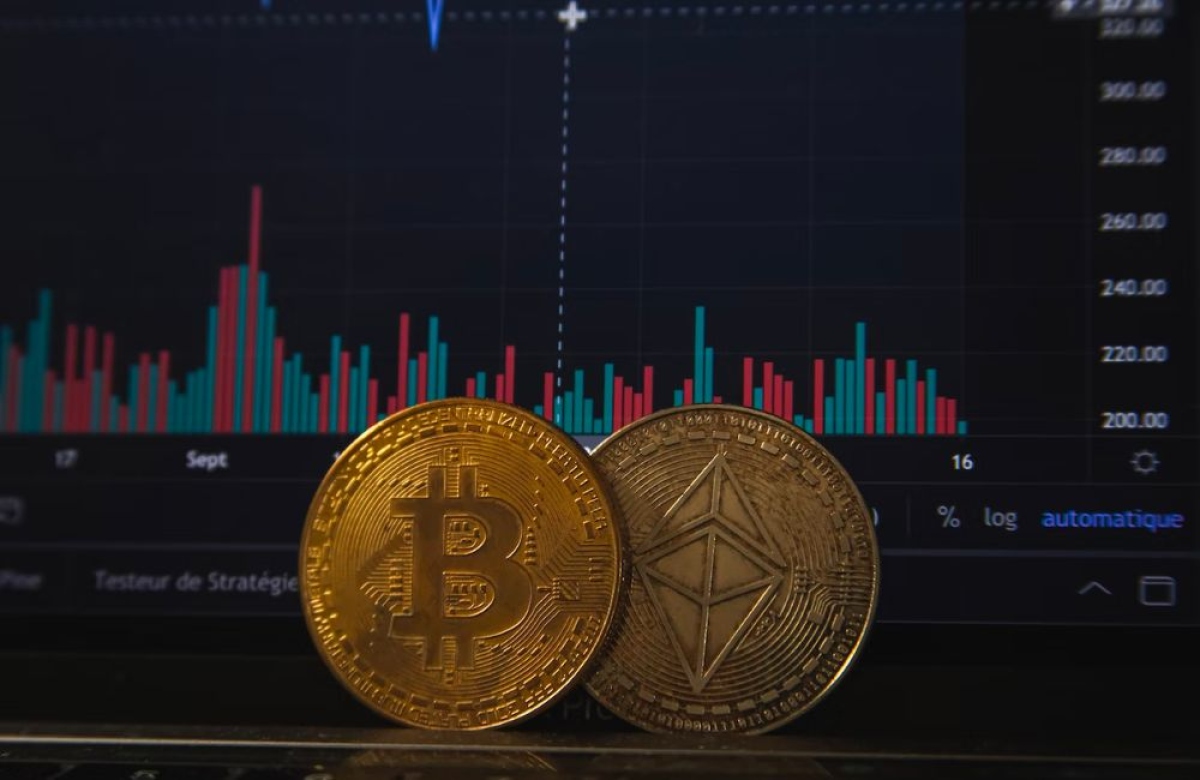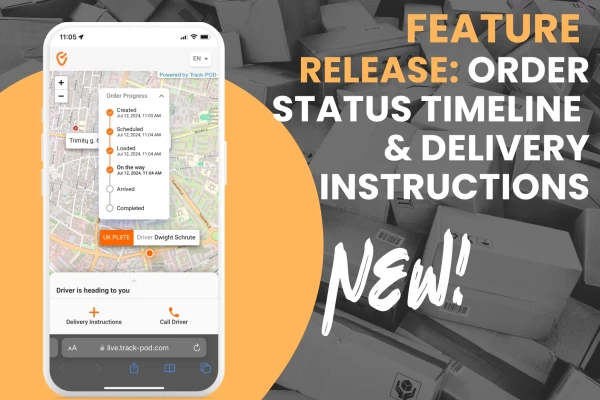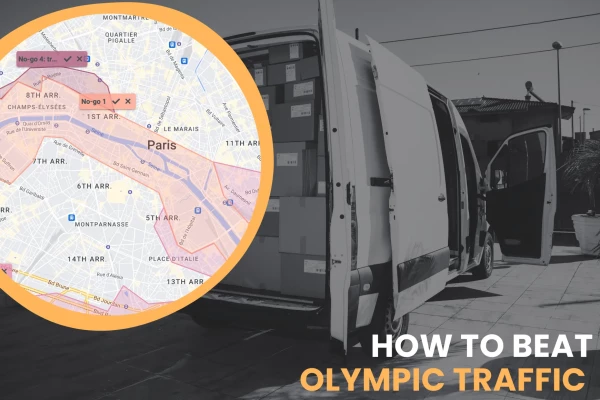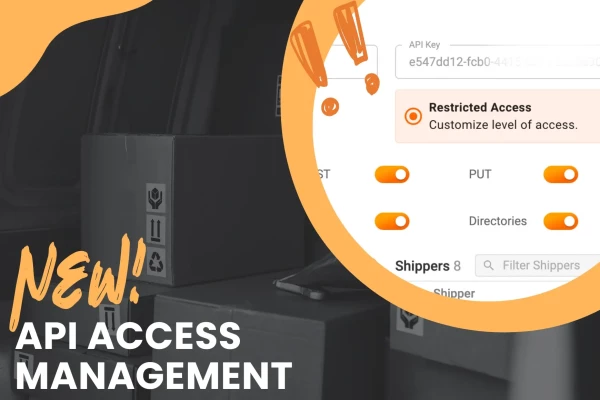Blockchain Technology for Supply Chains: a Must or a Maybe?

by
Alyse Falk
February 09, 2023
Today, most people associate blockchain solely with financial transactions. However, experience shows that technology offers interesting business opportunities in the supply chain sector.
There are a number of adherents who consider it a panacea. They believe that blockchain can change the rules of the game, solve fundamental problems and change the way many companies work forever. Is it so? Today we will shed light on this issue.
The modern supply chain and its benefits
What is the modern supply chain? Don't think it's just logistics. This is a whole complex of operations, which includes not only the delivery of finished products and raw materials. In fact, this is a complex process that involves an integrated approach.
In general, the chain includes manufacturers of raw materials, carriers of these raw materials, manufacturing companies, warehouses, distributors, wholesalers, and retailers. Each product has its own chain with a different number of links and organizations involved.
That is, the end consumer has no idea what exactly they are buying, what the product is made of, and whether the conditions for its transportation and storage were observed at all stages.
It is blockchain technology that makes it possible to correct the situation. Ideally, the buyer just needs to scan the QR code and follow the entire chain from beginning to end.
Case of Nestlé in the application of blockchain
Now let's talk about the importance of the supply chain for a manufacturer or supplier. Consider the example of Nestle. The multinational corporation has promised to purchase palm oil for its products only according to the criteria of the RSPO (“Round Table on Sustainable Palm Oil”).
The adoption of such measures is connected with the company's accusations of deforestation, which it provokes by its need for raw materials. But how to put it into practice? Where is the guarantee that the truckload of oil palm fruit will not stop along the way at other plantations and will not be reloaded?
The company uses blockchain technology for control. This is a complex technology that uses RFID tags, QR codes, and temperature sensors, as well as the concept of the "Internet of Things". All data is linked into a single blockchain.
In 2019, Nestlé implemented this technology on another product.
Buyers of Mousline mashed potatoes could use their smartphones to get information about the supply entire chain: from the farm to the storage conditions in the store where the purchase is made.
This instills confidence in the brand, as all information is available and transparent.
Supply chain management with blockchain
Let's turn to statistics: the use of blockchain technology in supply chains will grow by 51.3% every year until 2028. This is due to the growing popularity of technology. Blockchain technology in recruiting has even disrupted recruiters job in the recruitment world. The main reason is transparency and facilitating supply chain management.
Each change in the chain updates all transaction records, and this makes it possible to fully trace the data.
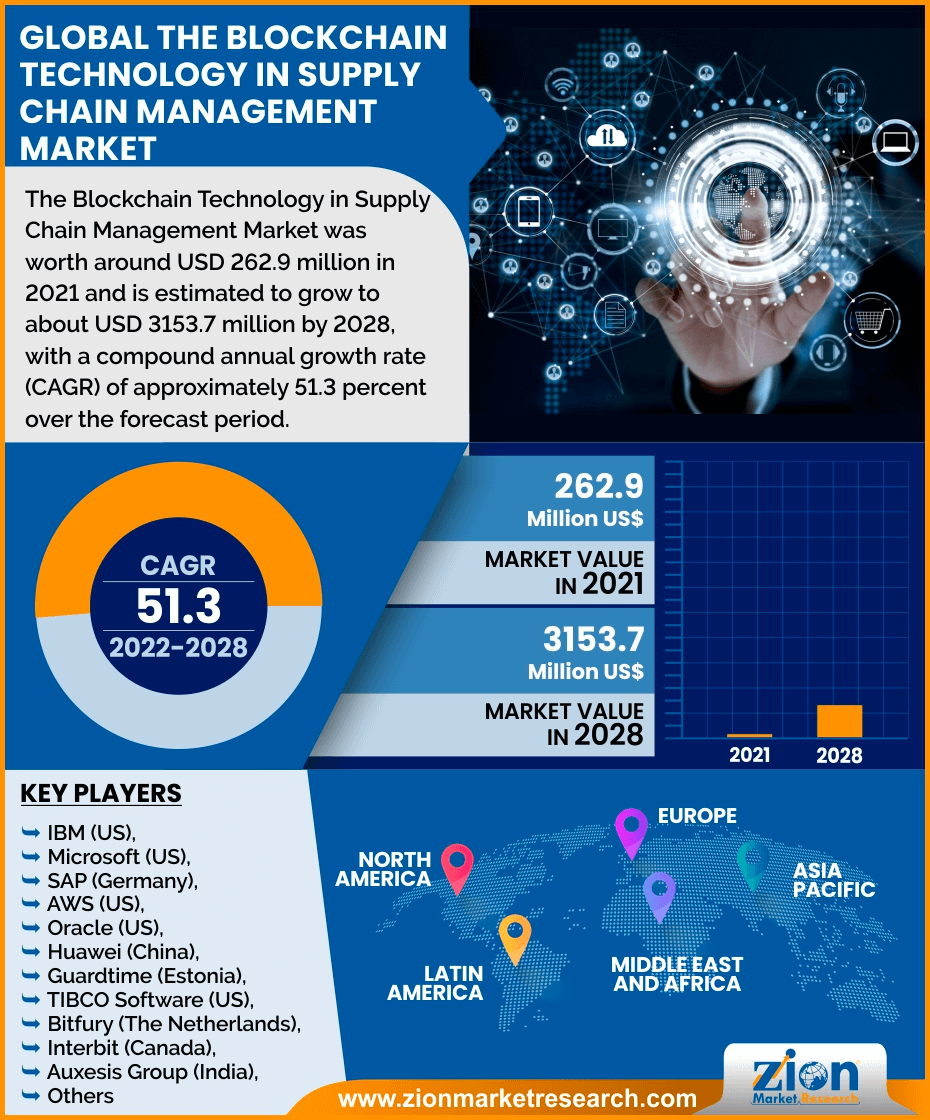
Another advantage is that blockchain in the supply chain is limited. The number of participants is strictly limited and controlled. And this is the fundamental difference between the supply chain blockchain and the cryptocurrency blockchain.
Unlike supply chain blockchains, cryptocurrency systems involve open networks, which can complicate issues like crypto taxes due to the decentralized and often anonymous nature of transactions. These open systems are also more exposed to security breaches, as seen in various crypto hacks over recent years.
The main roles of participants in the supply chain are strictly distributed.
-
Subjects. participants in the chain who perform certain supply operations.
-
Certifiers. organizations that give entities certificates for participation in the supply chain.
-
Standardizers. Organizations that standardize the blockchain, create its rules and schemes.
-
Registrars are organizations that issue certificates to blockchain participants.
This structure makes it possible to make supply chains not only more controlled but also easier to manage.
Transparency and traceability of the supply chain on the blockchain
The main condition for confirming the exchange of goods and services is the execution of the smart contract in full. This makes it possible to form a transparent value chain, confirm the exchange of services or goods, and update the blockchain registry with information about the transaction.
Another possibility of the supply chain on the blockchain is the traceability of the quantity, quality, and location of the product. That is, the end buyer can trace the entire chain from the purchase of raw materials to the delivery of the finished product to the retail store. This traceability makes it possible to exclude centralized control organizations from the supply chain.
Development of blockchain technology supply chains
How likely is it that over time all supply chains will switch to blockchain technology? Let's look at the statistics again.
IBM (USA), Microsoft (USA), SAP (Germany), AMS (USA), Oracle (USA), Huawei (China), Guardtime (Estonia), etc. are the main players in the market of blockchain technologies in supply chains.
These names indicate that the world leaders in the application of innovative technologies in business processes are already using blockchain in their supply chains. As you know, many of these companies have been pioneers that have led entire industries for many years. This means that technology will be embedded deeper into supply chains.
Why do companies need this technology? Within a few years, manufacturers, trading companies, and distributors that will not enable end customers and service users to track the entire supply chain will simply fall out of business, as they will be uncompetitive.
Customers will always choose a product and service with a transparent supply chain and value formation.
Conclusion
In conclusion, we will answer the question: blockchain technology for supply chains: a necessity or an opportunity? This is also a necessity since very soon companies that do not use this technology will not be able to compete fully in the modern market.
In addition, blockchain technology in the supply chain is a great opportunity to get ahead of your competitors right now and declare yourself as a manufacturer of goods or service providers with transparent supply chains, which will inspire customer confidence and increase turnover.
How quickly blockchain technology will be implemented in all supply chains? This will take a lot of time, but the process will speed up significantly once the end user understands all the benefits of using the blockchain for themselves.
About The Author
Alyse Falk
Alyse Falk is a freelance writer with experience in digital marketing, technologies, content marketing, marketing trends, and branding strategies.

